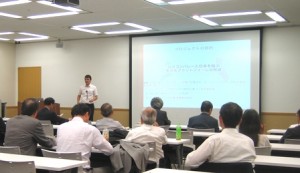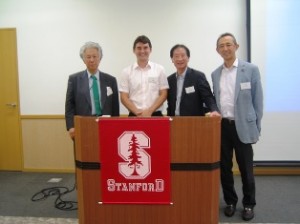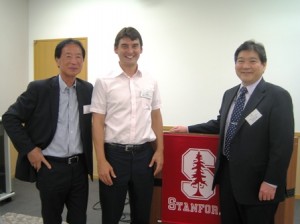"The Algorithmic Revolution behind the "Sharing Economy": a Silicon Valley vantage." (Japanese only)
SV-NJ Project Public Symposium with Keio Media Design School
On Jan 26, the Stanford SV-NJ project held a public symposium as part of its IT Policy Study Group in collaboration with the Keio Media Design School, at the Keio University Mita campus. Kenji Kushida and Taizo Son, founder and CEO of Mistletoe, each gave presentations about Silicon Valley and Japan from an academic and business perspective, respectively. They then formed a panel, moderated by Professor Ichiya Nakamura of Keio University, and had a lively discussion about the topics including mechanisms for regulatory change in Japan, the role of artificial intelligence, and how Japan can better utilize the Silicon Valley ecosystem.
Event Link (Japanese only): https://www.facebook.com/events/120063065034289/
Kushida gives talk at Canon Institute of Global Studies
On Jan 25, Kenji Kushida gave a talk at the Canon institute of Global Studies to an audience of about 180 people from various large Japanese companies, government, and others, entitled (in Japanese) "The Essence of Silicon Valley and Japan's Strengths and Challenges: An Algorithmic Revolution Perspective of Fintech, IoT, Cloud Computing, and Biotech." Slides abstract available below, with written version of the talk coming soon in link below (all Japanese).
Presentation Slides (Japanese)
Kushida and Maki give seminar on Understanding Silicon Valley and Startup Ecosystems
On December 2, 2015, Kenji Kushida and Kanetaka Maki, Research Associates at the Shorenstein Asia-Pacific Research Center Japan Program, gave a joint seminar at Stanford University to over 50 participants, entitled “Understanding Silicon Valley and Startup Ecosystems: New research and academic classics you should know.” Kushida provided an overview of canonical works of Silicon Valley, including the work of Martin Kenney and his classic co-edited volume “Understanding Silicon Valley” and other more recent work drawn from the Stanford Silicon Valley - New Japan Project’s “Essential Reading List of Silicon Valley.”
Maki presented his new research from a paper entitled “Milestones to University-Based Startup Success: What Is the Impact of Academic Inventor Involvement?” Based on the data analysis of 533 University of California startups, Maki addressed the impact of inventor involvement in the growth and success of university-based startups.
A full video of the seminar is available for viewing here:
https://www.youtube.com/watch?v=LEueiInUkaE&feature=youtu.be
METI official provides insights to key presentations from the US-Japan VC conference
Mr. Yoshiaki Ishii, the METI official behind the US-Japan Venture Capital Conference "Moment2015," held at Stanford on 10/30 and 10/31, sponsored by METI and organized by WiL, who gave the opening remarks for both days, wrote up his observations and summaries of some of the main points of key presentations in Toyo Keizai Online.
The full article (Japanese only) can be found here: http://toyokeizai.net/articles/-/92834
"Japan's entrepreneurs 'start something new' with Silicon Valley's help"
Full article available here: http://www.mercurynews.com/peninsula/ci_29106481/japans-entrepreneurs-start-something-new-silicon-valley-help
Stanford Students Contemplate Brand Awareness at ANA Ideathon
On October 13, 2015, nineteen Stanford students participated in the ANA Ideathon, a hackathon for branding concepts to benefit the major international airline, ANA. The ideathon was the first of its kind at the Shorenstein Asia-Pacific Research Center, lead by the Japan Program under the rubric of the Stanford Silicon Valley-New Japan Project (SVNJ).
Looking to double in size in the next three years, ANA faces challenges including international brand visibility. Over a delicious Japanese dinner, millennials from diverse areas of undergraduate and graduate study set out to solve the issue of enhancing ANA's brand awareness in the United States. Within a few short hours, each team, whose members were strangers before the contest began, delivered a three minute pitch on how to solve this brand awareness issue. Executives from ANA, the World Innovation Lab (WiL), and bTrax, judged the pitches, and prizes were given to the winning team for their creativity and the feasibility of their concept.
ANA is a silver sponsor of the Stanford Silicon Valley-New Japan Project.
Read more here: http://aparc.fsi.stanford.edu/japan/news/students-share-marketing-insights-japanese-airline
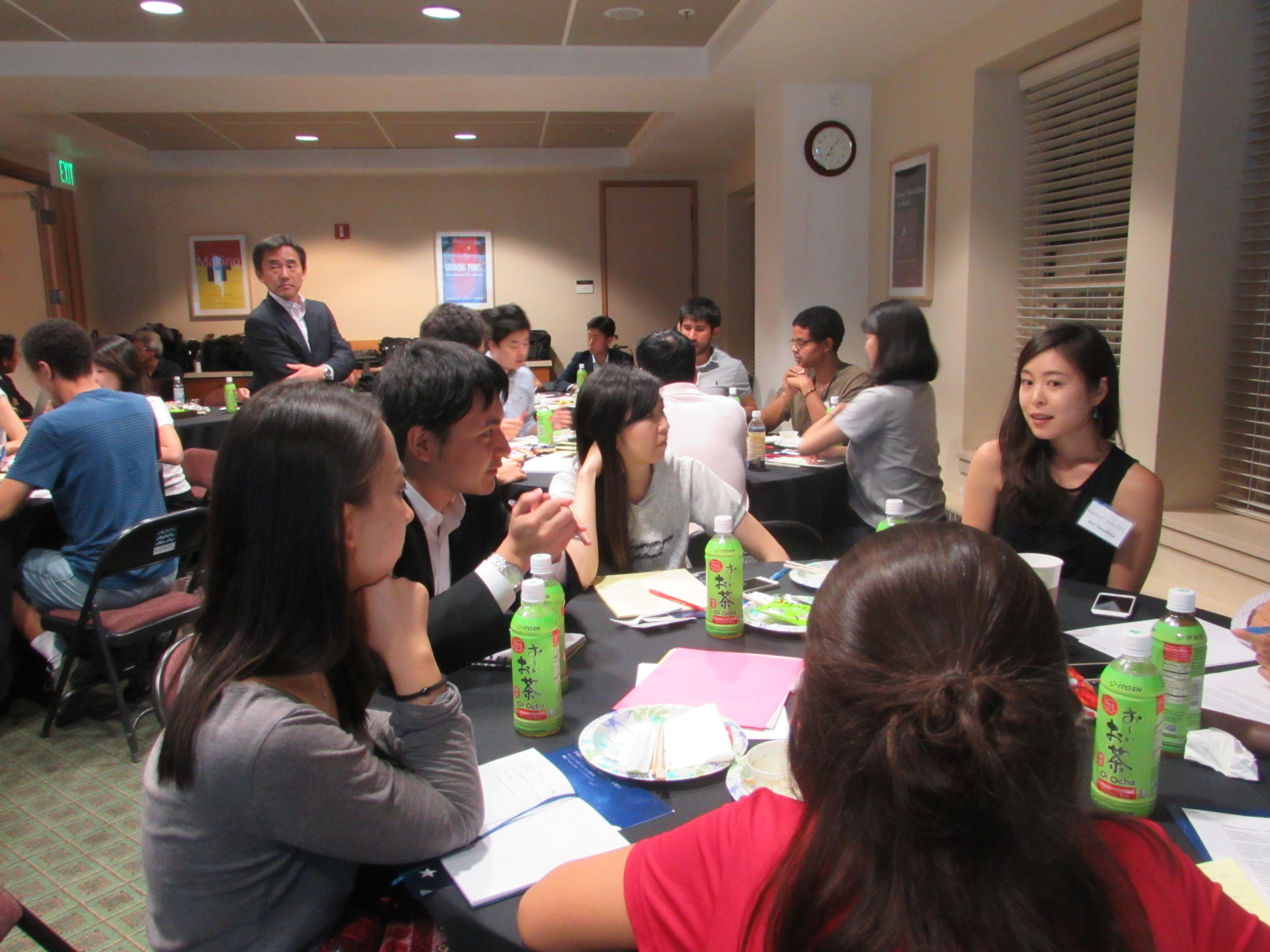
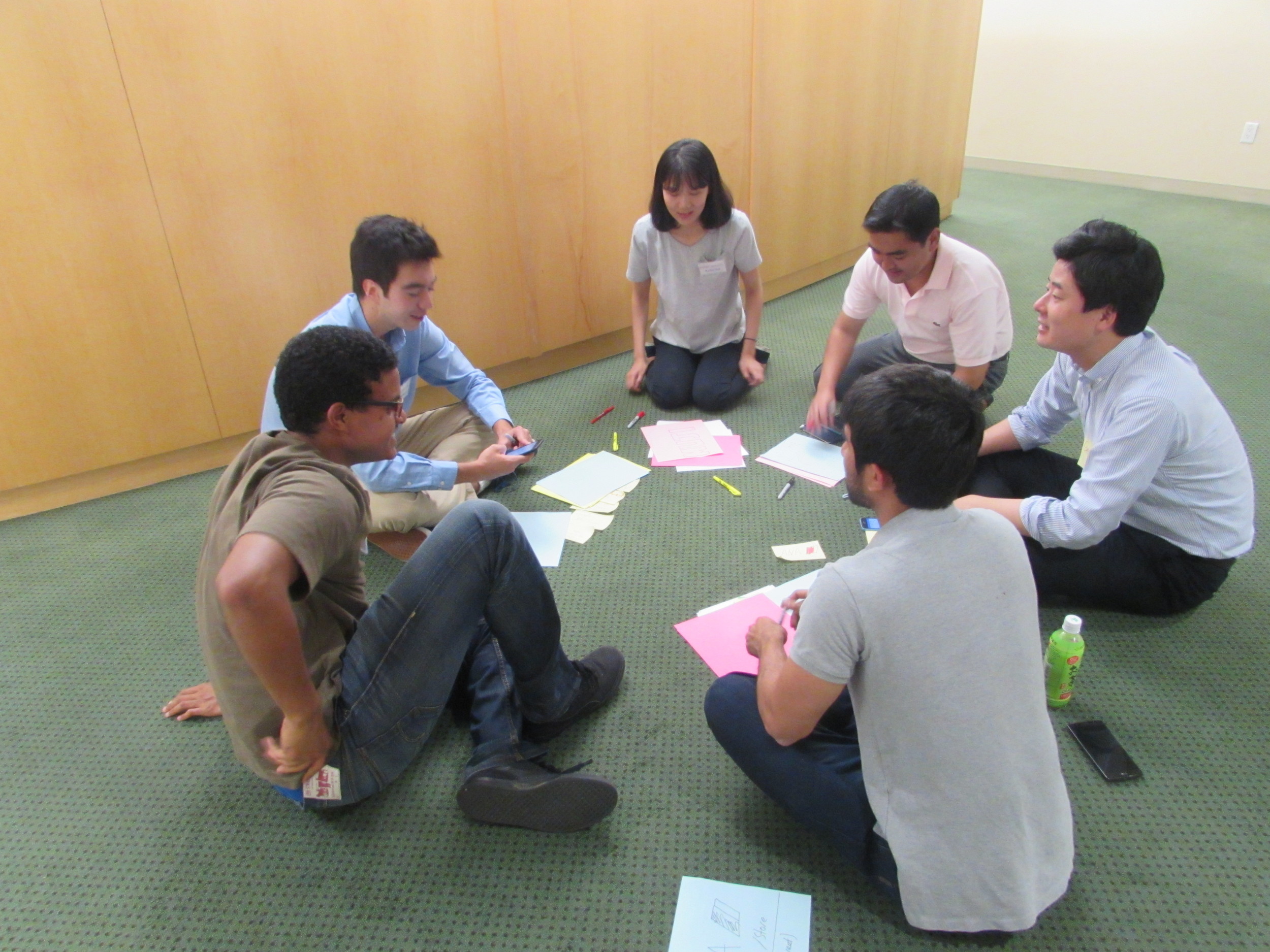
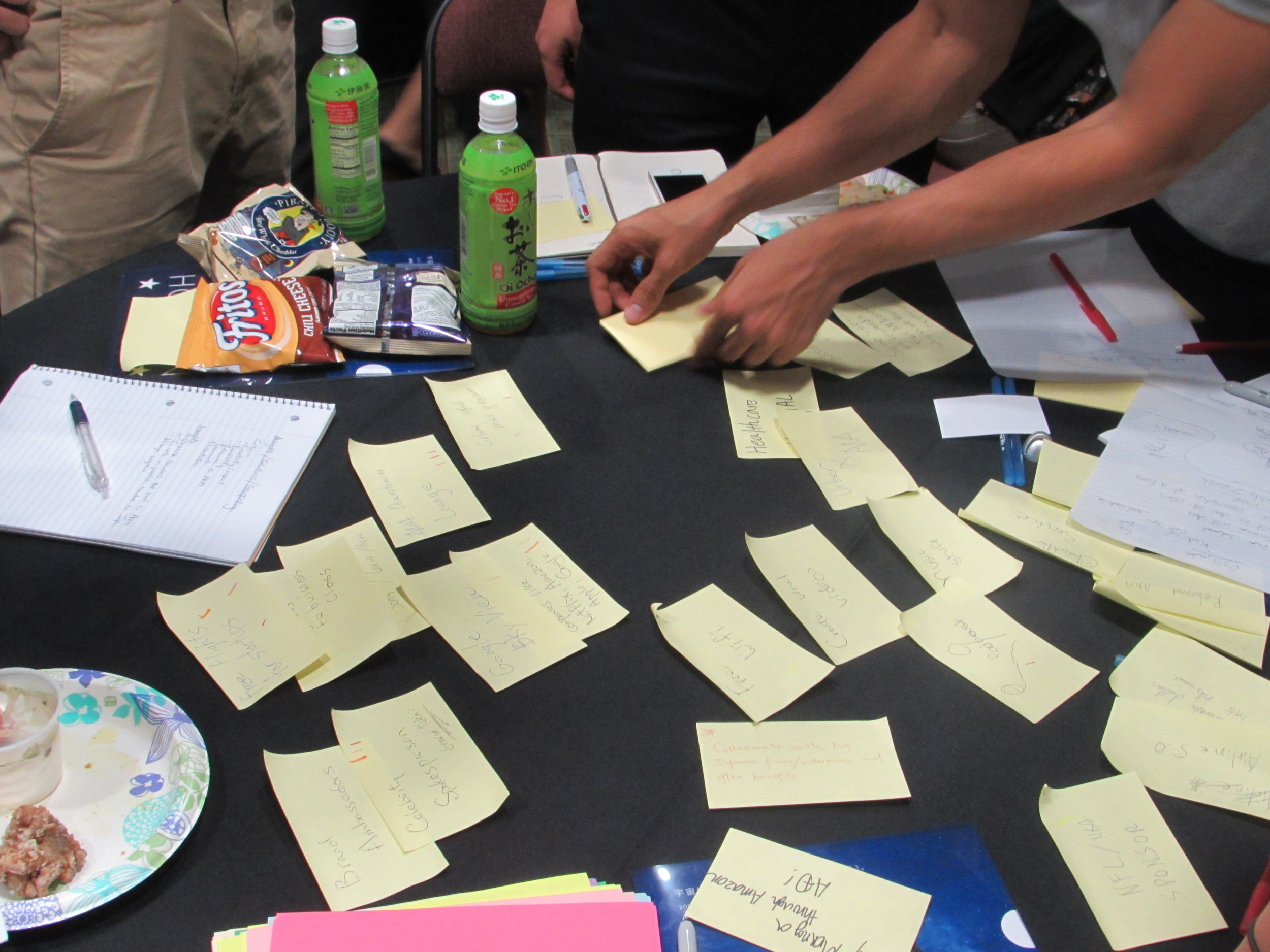
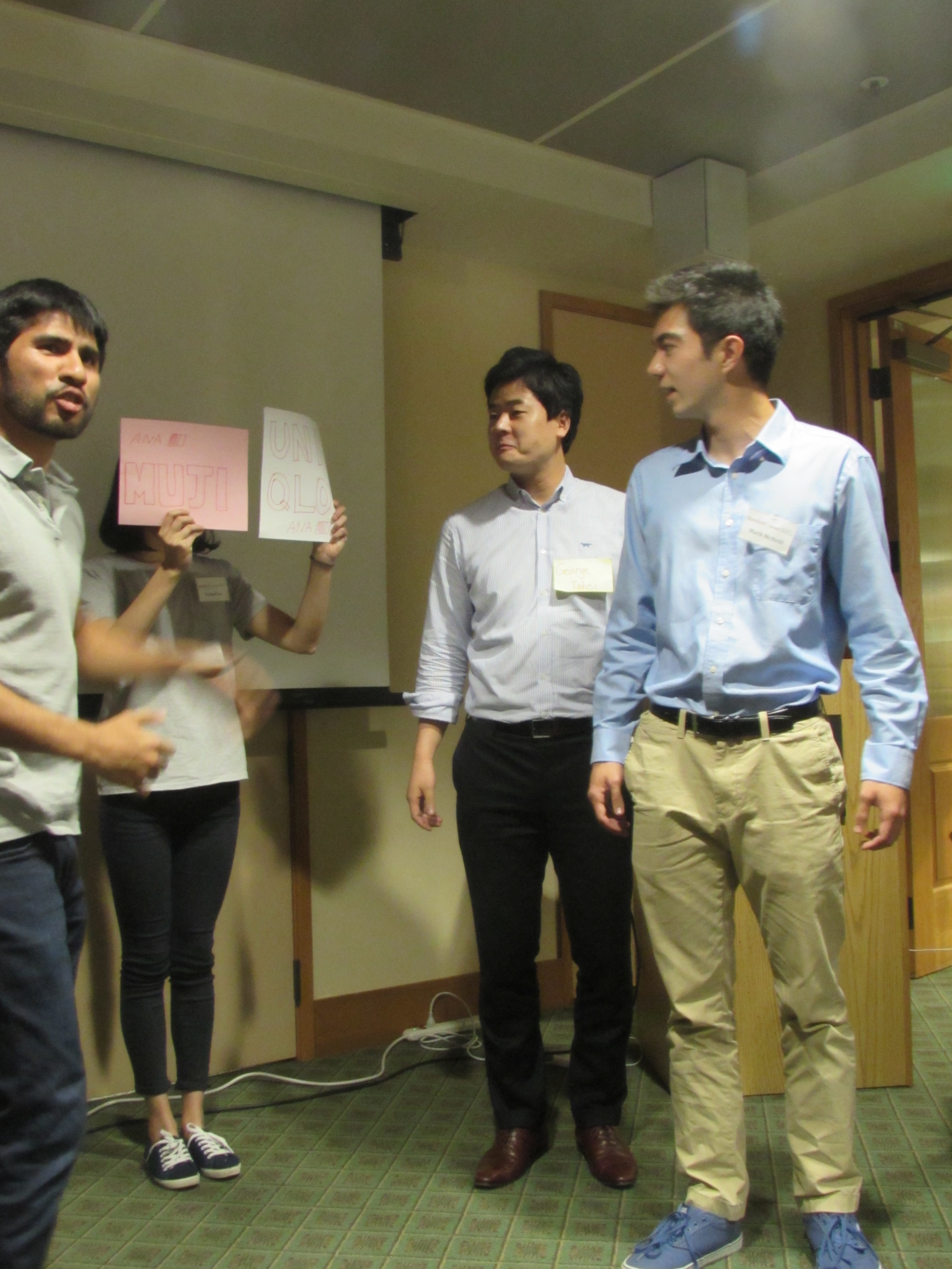
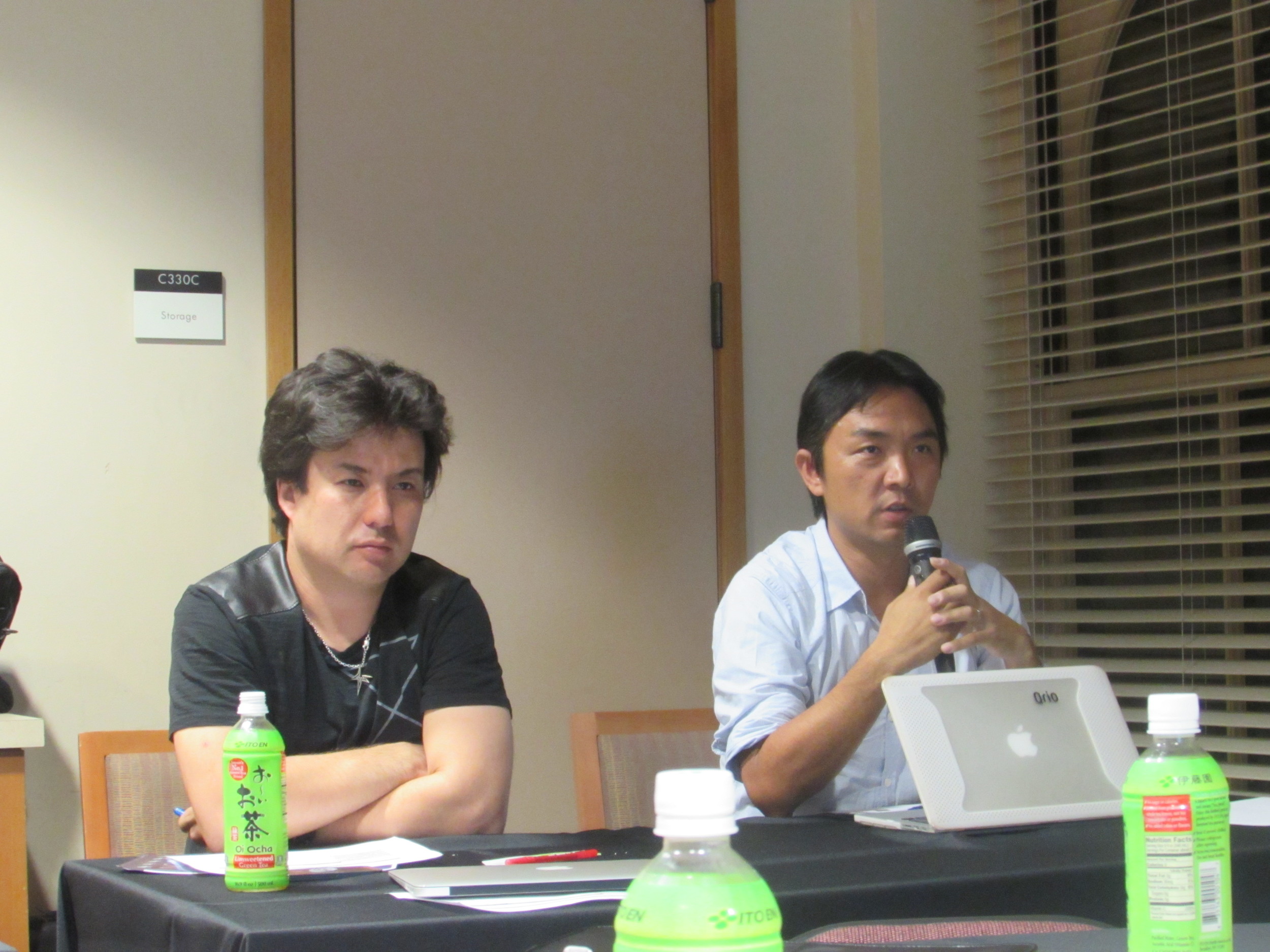
Students brainstorm then pitch branding ideas to judges at the ANA Ideathon
Maki to give talks in Japan on inventor involvement in university-based startups
Links to the events can be found below.
Kanetaka Maki joins SV-NJ
Kanetaka M. Maki is a Japan Program Research Associate at the Walter H. Shorenstein Asia-Pacific Research Center and an International Affiliated Fellow at National Institute of Science and Technology Policy (NISTEP).
Maki’s research interests are in the fields of socio-economics of innovation & entrepreneurship, science policy, and university-industry technology transfer. He has three streams of research contribution: (1) the institutional design of entrepreneurship in connection with research universities; (2) startup success rates; and (3) comparative quantitative research, in particular innovation streams in Japan.
Prior to coming to the US, Maki served as a Founding Chief Officer of SIV Entrepreneur Laboratory at Keio University in Japan. He has designed and overseen courses and programs on entrepreneurship at Keio University. Additionally, he actively involved as committee member of "Basic Research for Academic Entrepreneurship" hosted by Minister of Economy, Trading and Industry and several others to create effective academic entrepreneurship model in Japan.
Maki holds a Ph.D. in management from the University of California, San Diego. He received M.A. in Media and Governance and B.A. in Environmental Information, both from Keio University.
Kanetaka Maki's full profile can be found here: http://aparc.fsi.stanford.edu/japan/people/kanetaka-maki
Coauthor of research papers Jonathan Murray, CTO of New York Times, interviewed by Forbes
"Moving at the Speed of Business: Time to Value and the Industrialization of IT - Q&A with Jonathan Murray, Interim CTO of The New York Times"
SV-NJ Project joint seminar with Keio's Media Design School
On September 14th the Silicon-Valley New Japan Project held a joint seminar with Keio University Media Design School entitled "Why Silicon Valley Cannot be Created in Japan" (シリコンバレーなぜ日本でできないのか) The seminar had 33 attendees with 15 attending via Skype from Keio University in Japan. The seminar, led by Kenji Kushida, discussed university-industry relations in Silicon-Valley and Stanford as well as challenges facing Japanese universities and the start-up ecosystem.
Kushida gives seminar at Canon Institute for Global Studies
On April 28th Kenji Kushida gave a seminar hosted by the Canon Institute for Global Studies (CIGS) in Tokyo on IT innovation, Silicon Valley, and SV-NJ's efforts to effectively harness the Silicon Valley ecosystem.
Details and seminar summary (Japanese only) can be found on the CIGS website:
http://www.canon-igs.org/event/report/20150907_3117.html
Stanford, Toyota to collaborate on AI research effort
"Led by Associate Professor Fei-Fei Li, the new [Stanford Artificial Intelligence Lab] SAIL-Toyota Center for AI Research will focus on teaching computers to see and make critical decisions about how to interact with the world."
For the full article visit:
http://news.stanford.edu/news/2015/september/toyota-stanford-center-090415.html
Nomura Research Institute joins SV-NJ Project as Silver Sponsor
Nomura Research Institute (NRI), one of the leading management and IT consulting firms in Japan, joined the Silicon Valley-New Japan Project as a Silver Sponsor.
Press release on September 4th in the Nikkei Sangyo Newspaper.
Japan's Top University Embraces Silicon-Valley Spirit
University of Tokyo fosters startups as country’s tech industry confronts challenges
"Plenty of students enter Stanford not planning to become entrepreneurs, but by interacting with so many alumni and ecosystem players, they get interested," said Kenji Kushida, a researcher at Stanford who leads a project that seeks to help Japan build closer connections to Silicon Valley and learn from it.
Full article available here: http://www.wsj.com/articles/silicon-valley-ethos-prestigious-japan-school-ventures-into-entrepreneurship-1440704144
Please note that article access does require login or subscription to the Wall Street Journal.
New Report: Institutional Foundation for Innovation-Based Economic Growth
RICHARD DASHER, NOBUYUKI HARADA, TAKEO HOSHI, KENJI. E. KUSHIDA, TETSUJI OKAZAKI.
Dasher, Richard, Nobuyuki Harada, Takeo Hoshi, Kenji E. Kushida, Tetsuji Okazaki. "Institutional Foundation for Innovation-Based Economic Growth." National Institute for Research Advancement (NIRA).
ABSTRACT
Innovation is essential for the growth of a matured economy like Japan. This report examines the institutional foundations of innovation-based economic growth and explores the role of Japanese government in encouraging innovation by Japanese companies and entrepreneurs. We start by summarizing eleven elements that characterize the ecosystem of Silicon Valley, which is often considered to be the best example of innovation-based economy. We then discuss how those elements fit with six institutional foundations that support the innovation-based economic growth. Those are (A) financial system that provides funding for risky ventures, (B) labor market that provides high quality, diverse and mobile human resources, (C) interactions between industry, universities, and government to generate a constant stream of innovative ideas, products, and businesses, (D) industrial organization where large established firms and small startups grow together, (E) social system that encourage entrepreneurship, and (F) professionals that assist establishment and growth of startups. Japan has not yet established these institutional foundations. The government can help by encouraging development of these institutional foundations. If it is difficult to establish a certain institutional foundation in a short time, the government may instead help Japanese firms and entrepreneurs to tap the Silicon Valley ecosystem directly. The Japanese government has been trying numerous industrial policies that may encourage development of some of the six institutional foundations, as well as policies that directly support R&Das precursors for innovation. The latest attempts are found in the Abenomics growth strategy. Thus, we find that the underdevelopment of those institutions in Japan is not due to the lack of policy ideas. The problem has been the shortcoming in the efforts of policy evaluation to find out which policy interventions are actually promising and how those should be implemented to guarantee effectiveness. The policies that help Japanese firms and entrepreneurs to directly benefit from the Silicon Valley ecosystem have been lacking. It is worthwhile to try those policies if those are accompanied by rigorous policy evaluation and adjustments to find the effective policies.
SV-NJ presents to Japan Stanford Association
Kenji Kushida presented to the Japan Stanford Association in Tokyo on June 30, 2015, presenting his research about Silicon Valley and Japan, Information Technology, and highlighting activities about SV-NJ. With about 1600 members (1400 Japanese and 200 non-Japanese) the Japan Stanford Association (JSA) is one of Stanford University's largest and most active alumni organizations outside the United States and one of the most prominent foreign university alumni organizations in Japan.
Link to news item and presentation the Japan Stanford Association website: http://japanstanford.org/events/jsa-sempai-seminar-56th/#
SV-NJ Guest Speaker Casey Wahl's Article on The Huffington Post (Japanese Only)
Article: 日本企業がシリコンバレーでうまくいってない理由 (The Huffington Post, June 2015)
SV-NJ Research Collaboration with Keio
The ongoing research collaboration between the Stanford Silicon Valley - New Japan project and Keio University's Keio Media Design School was featured in a public event held at Keio's Mita campus in Tokyo on April 23rd, announcing plans for a new Contents innovation Program (CiP) facility to be built near Tokyo Bay, inside a major new redevelopment project. CiP will be located in Takeshiba, which got approval as a Special Administrative Zone, where localized deregulation of various sorts are hoped to all a variety of innovations that are not possible elsewhere.
SV-NJ and KMD have been engaged in a joint research project examining the future of Information Communications Technology (ICT) policy.
Various LDP and government officials, along with Kenji Kushida representing Stanford SV-NJ gave brief remarks, followed by a special lecture by Tokyo University's Shuichi Inada and a panel.
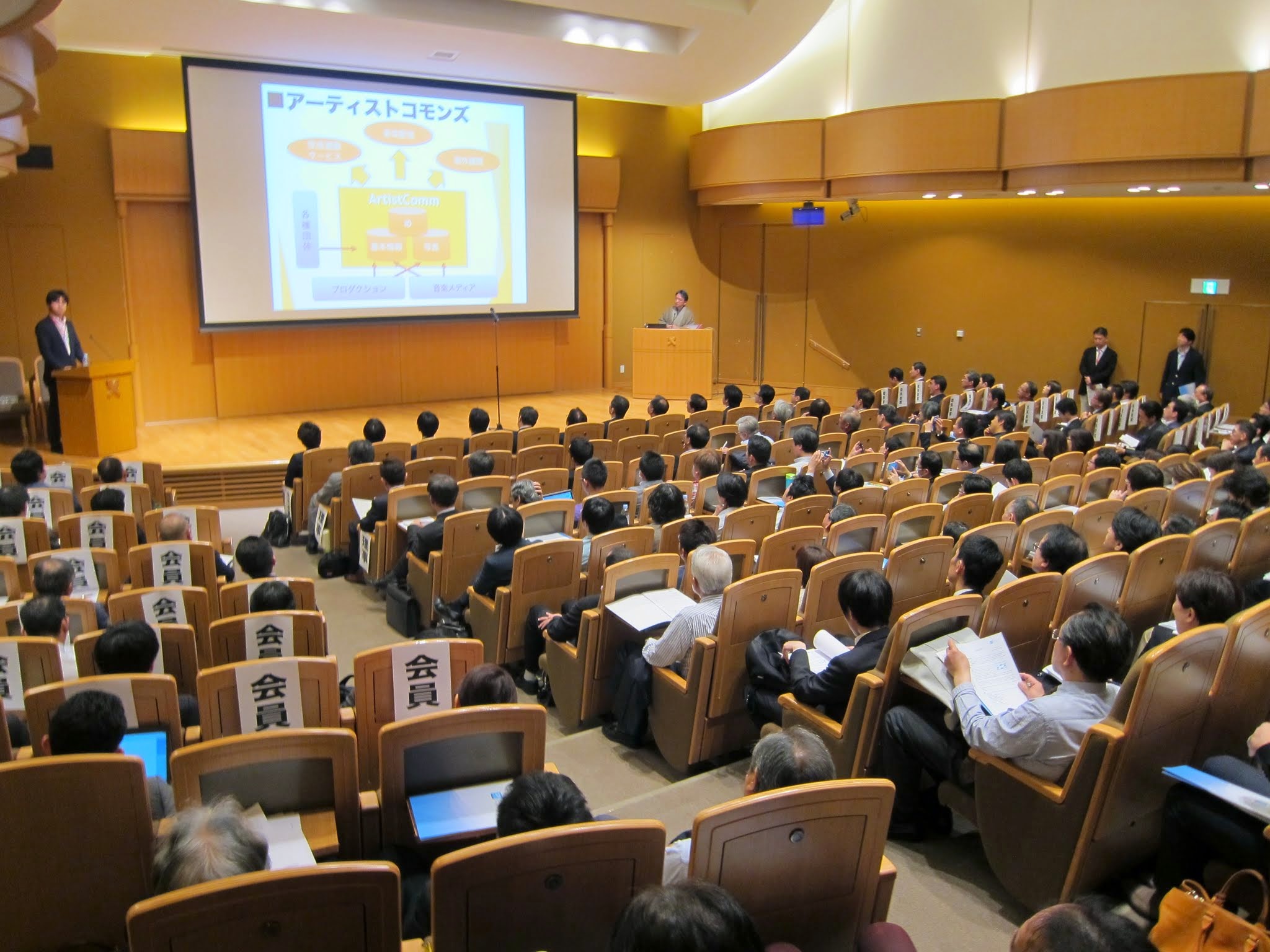
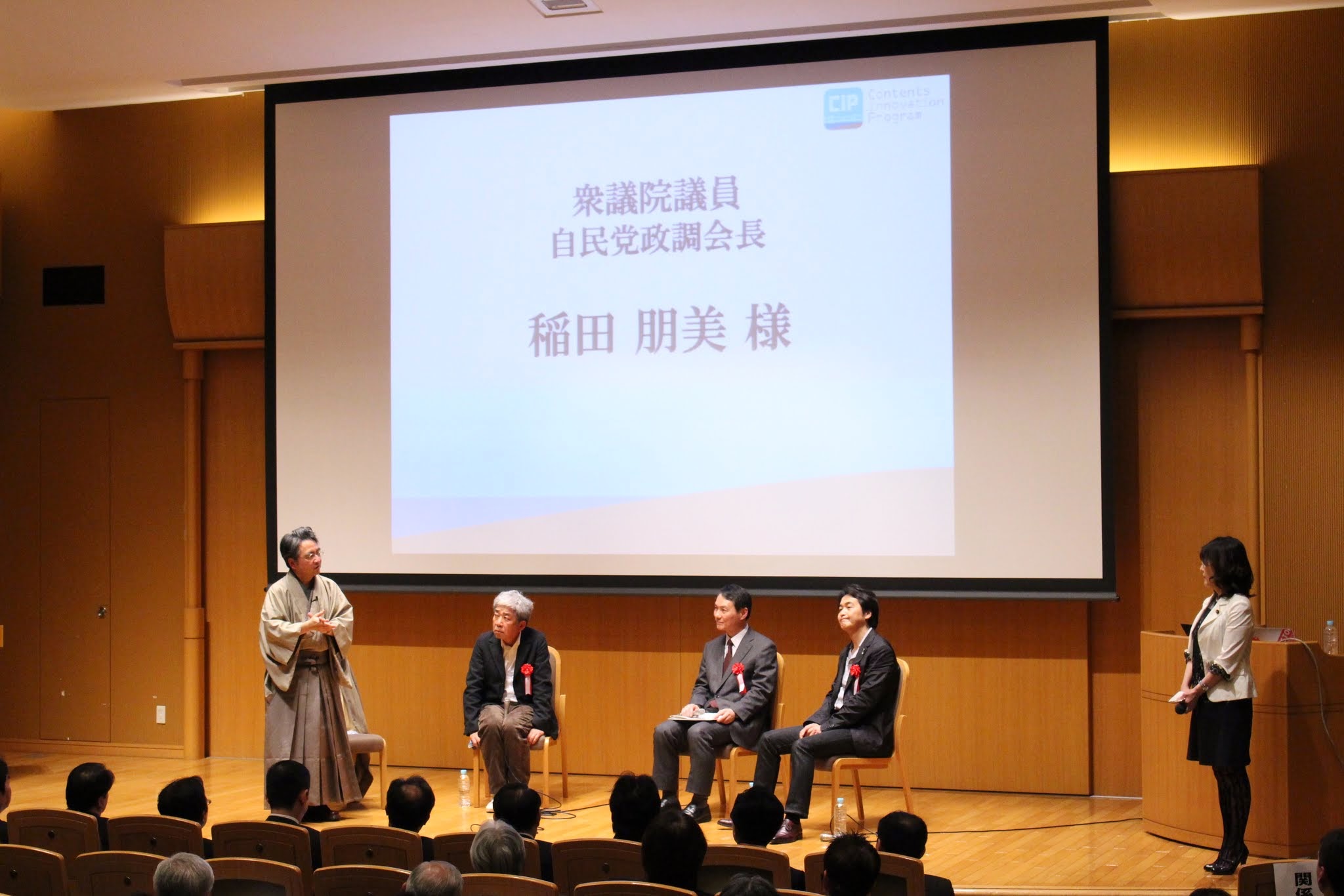
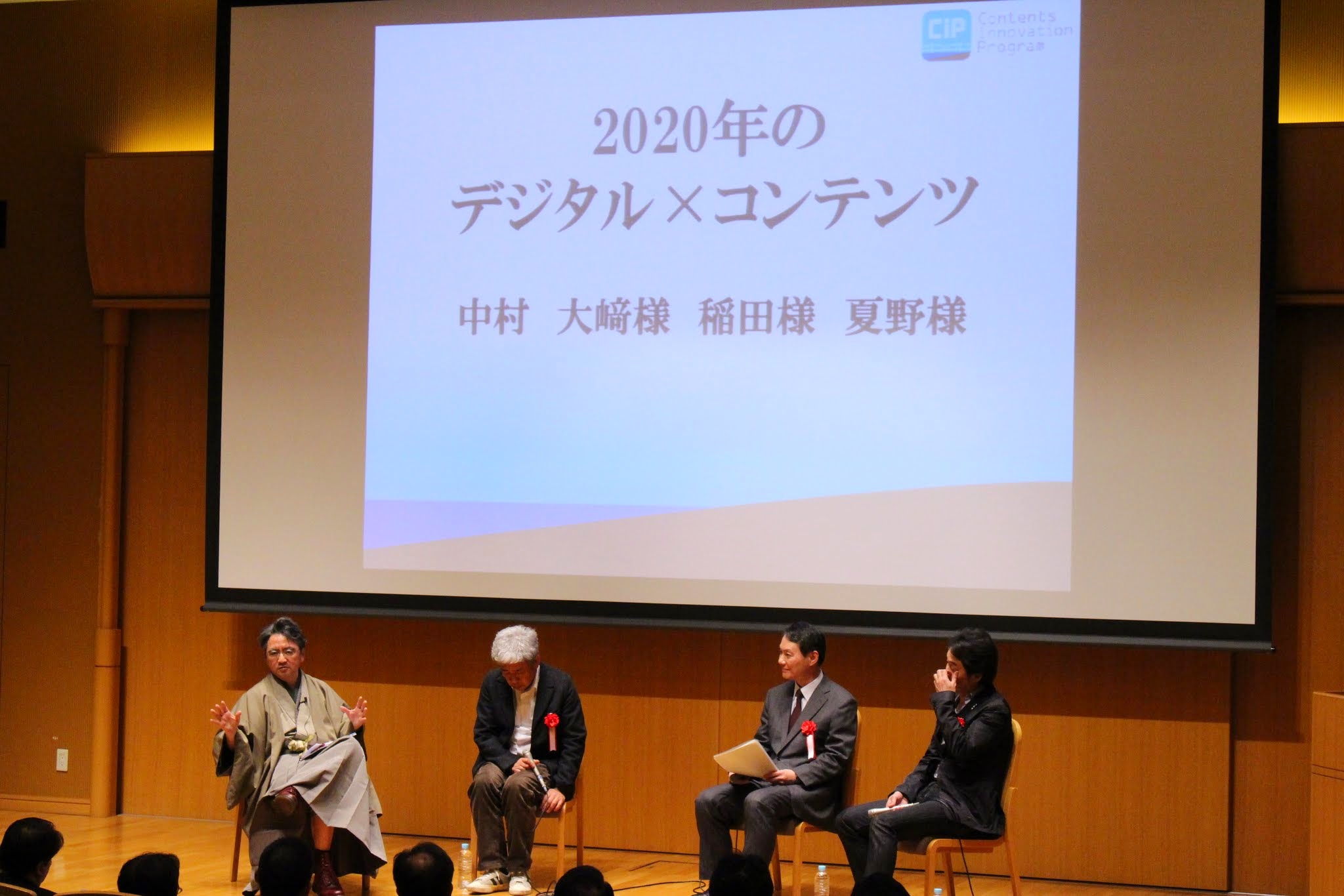
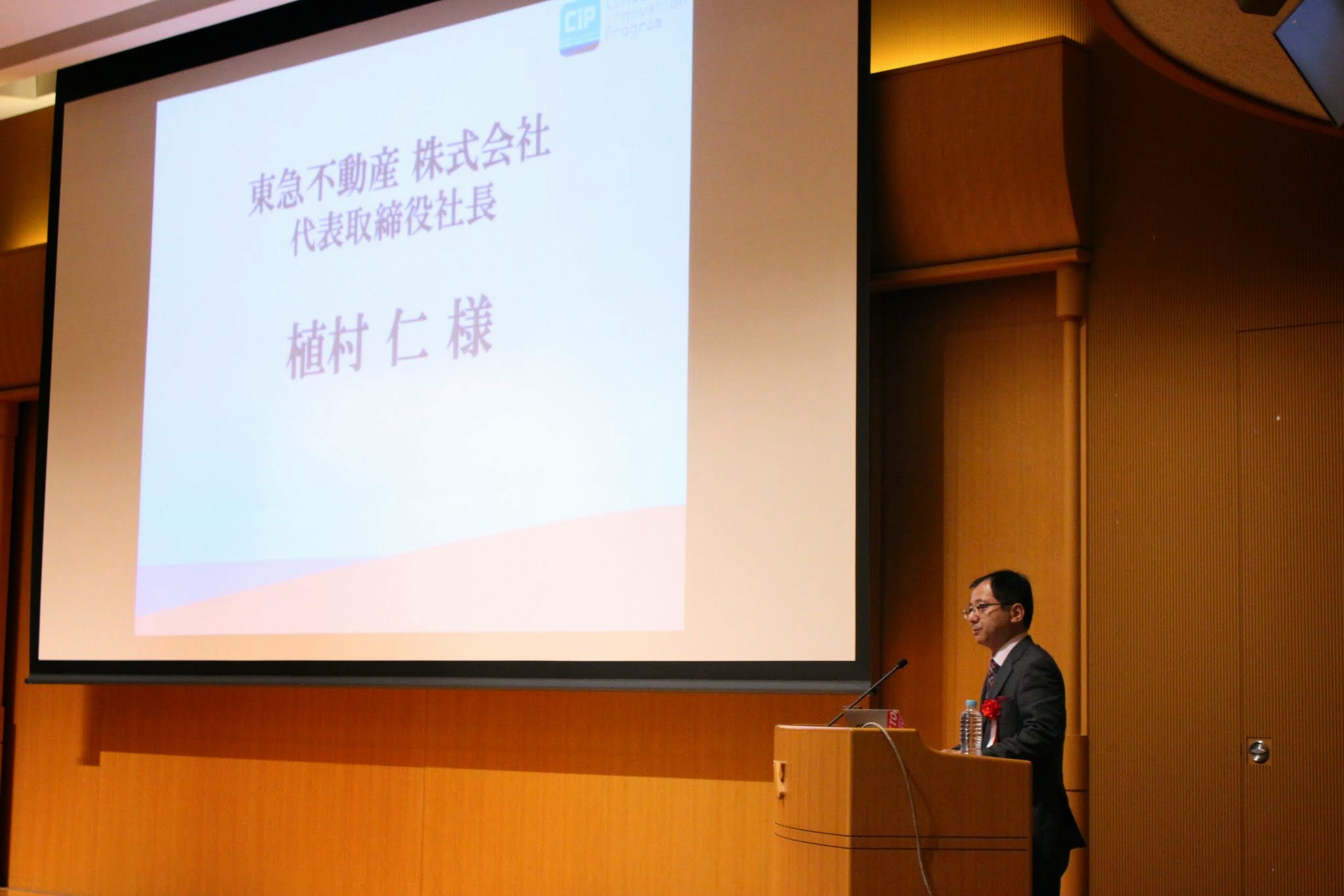
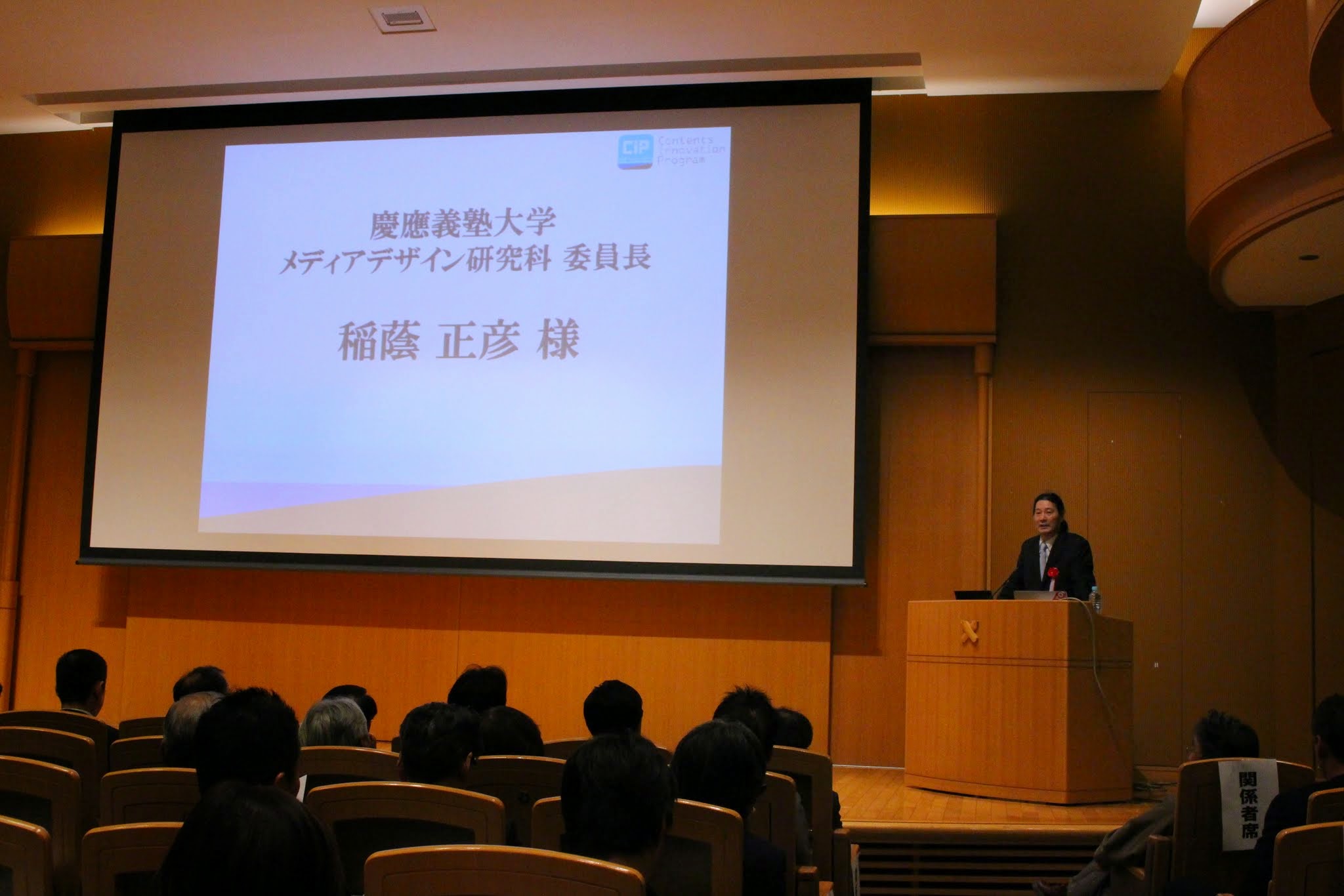
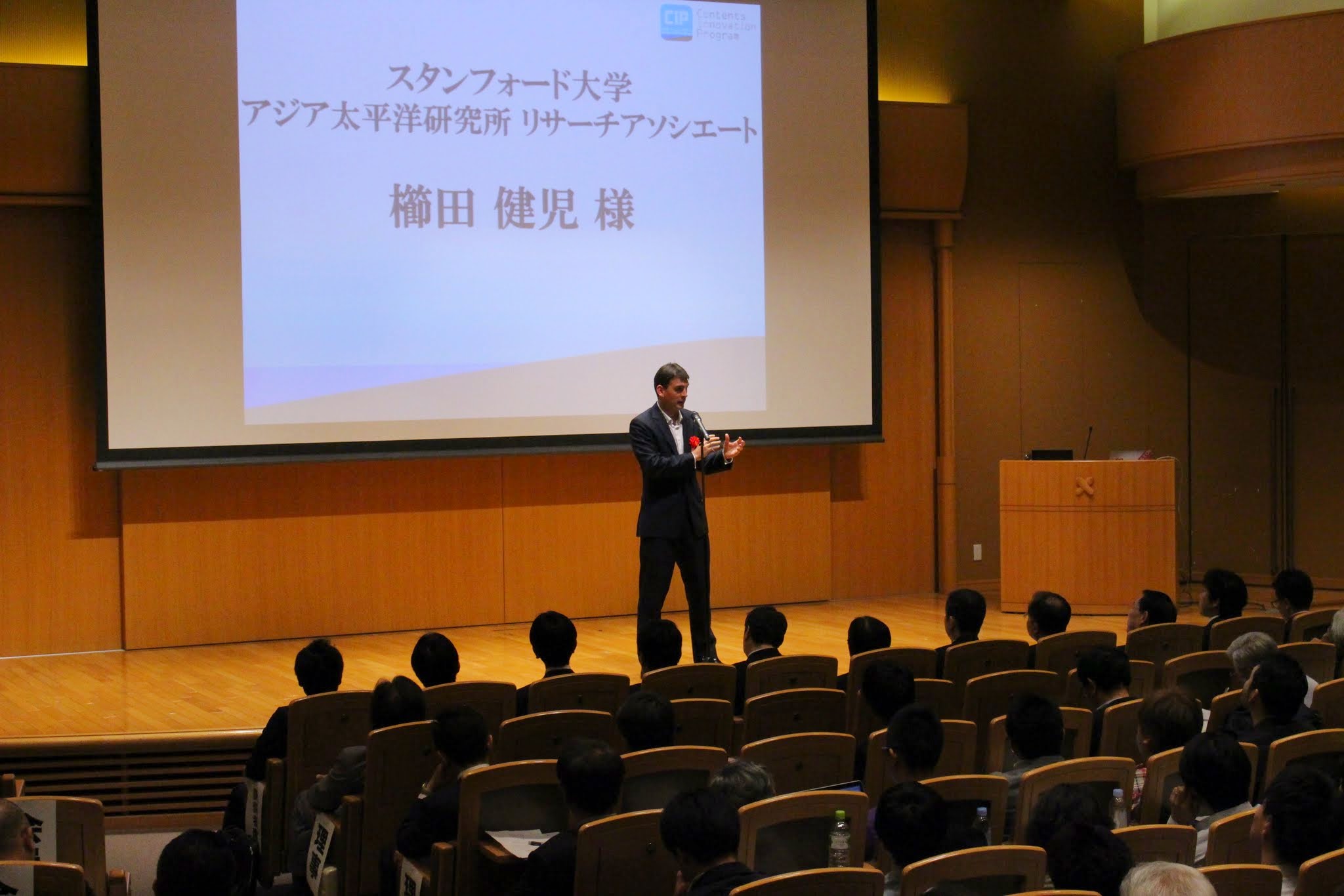
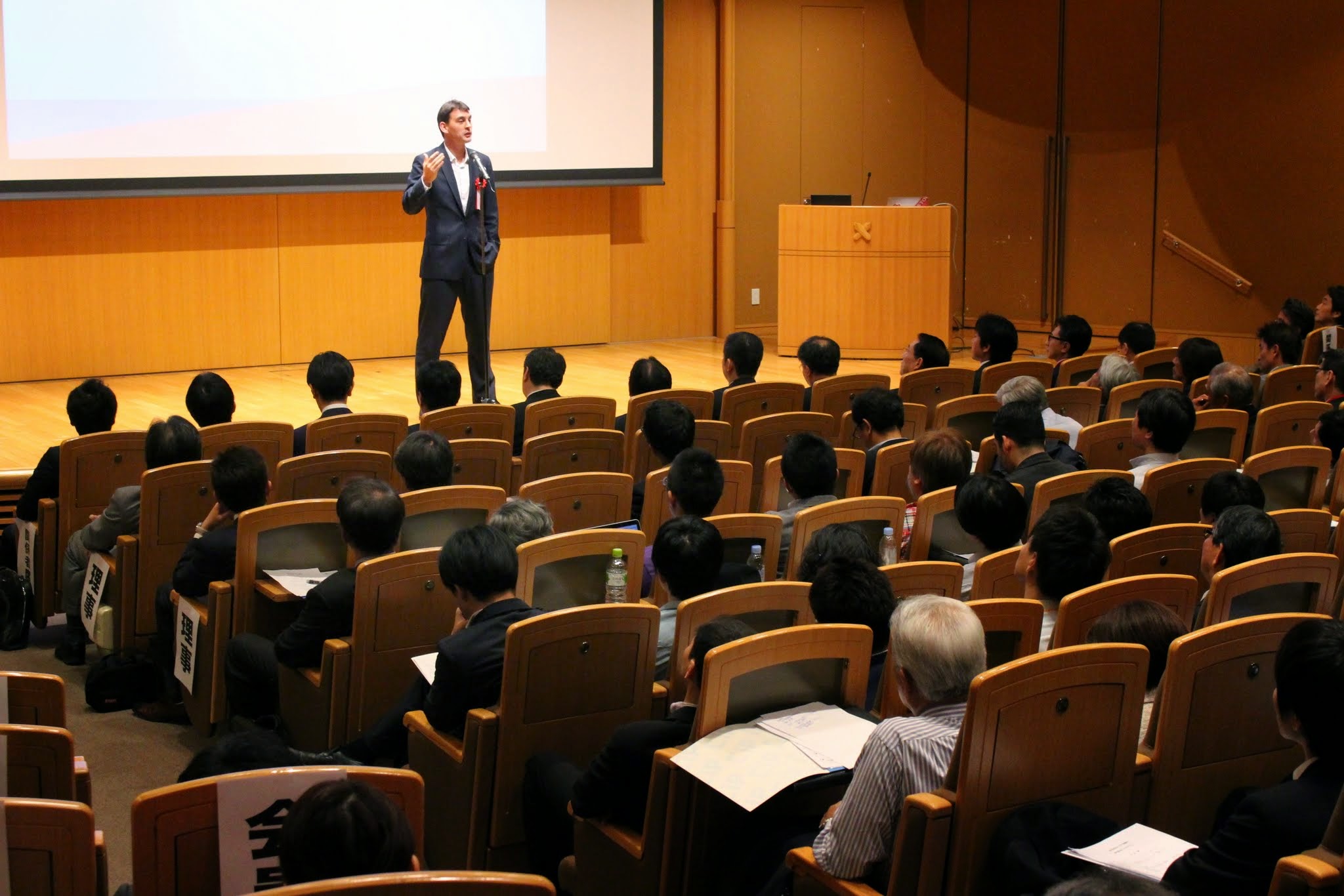
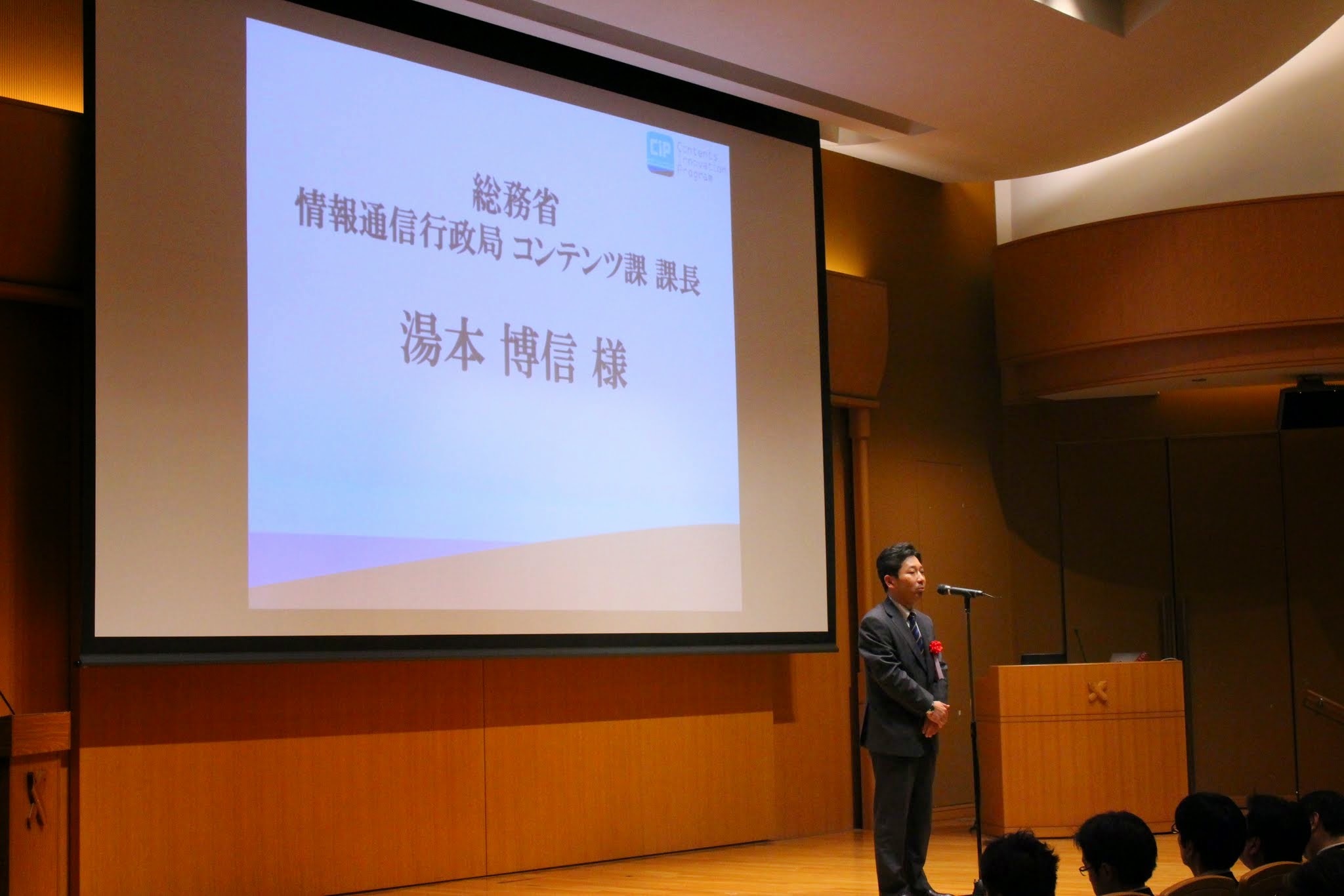
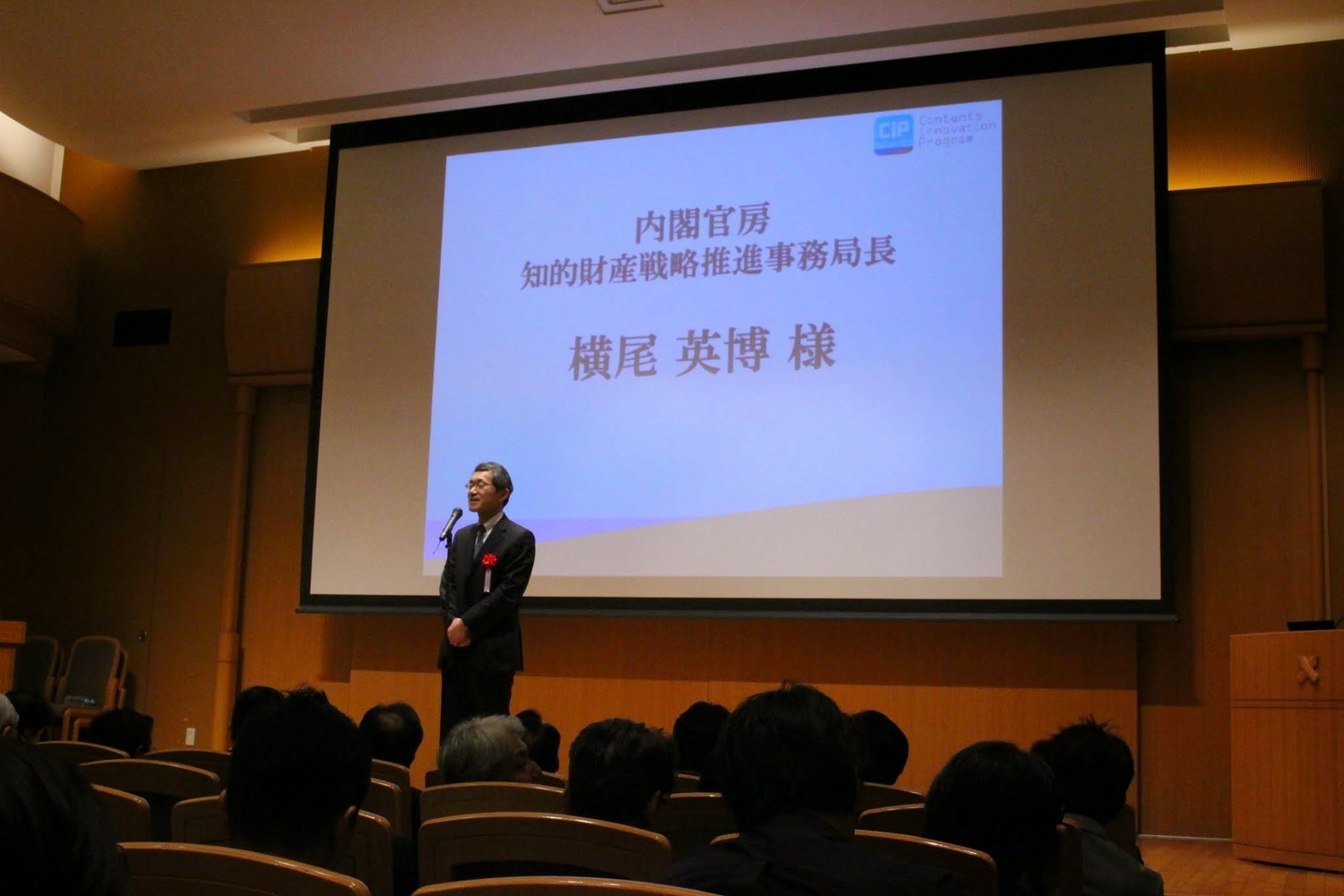
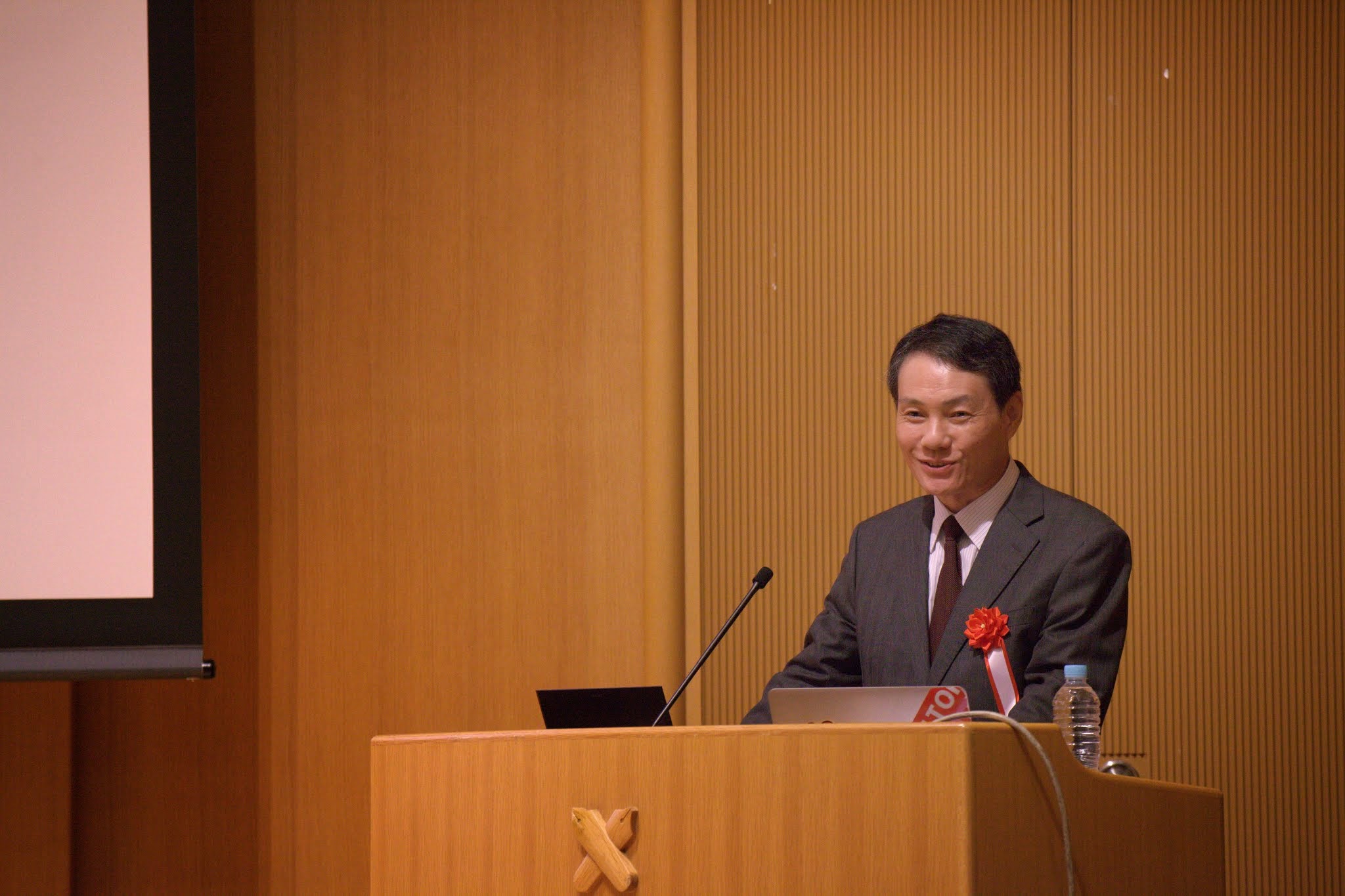
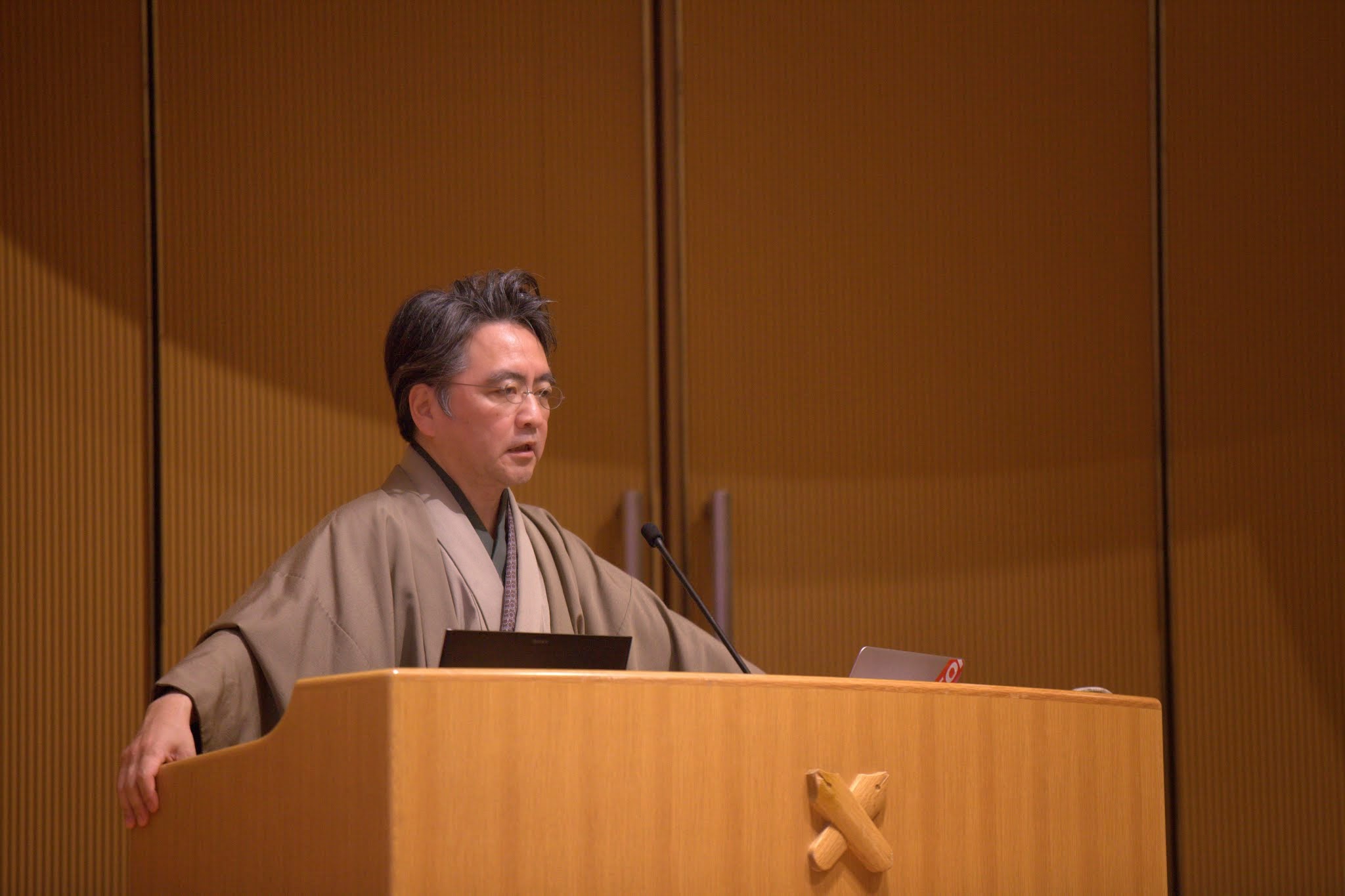
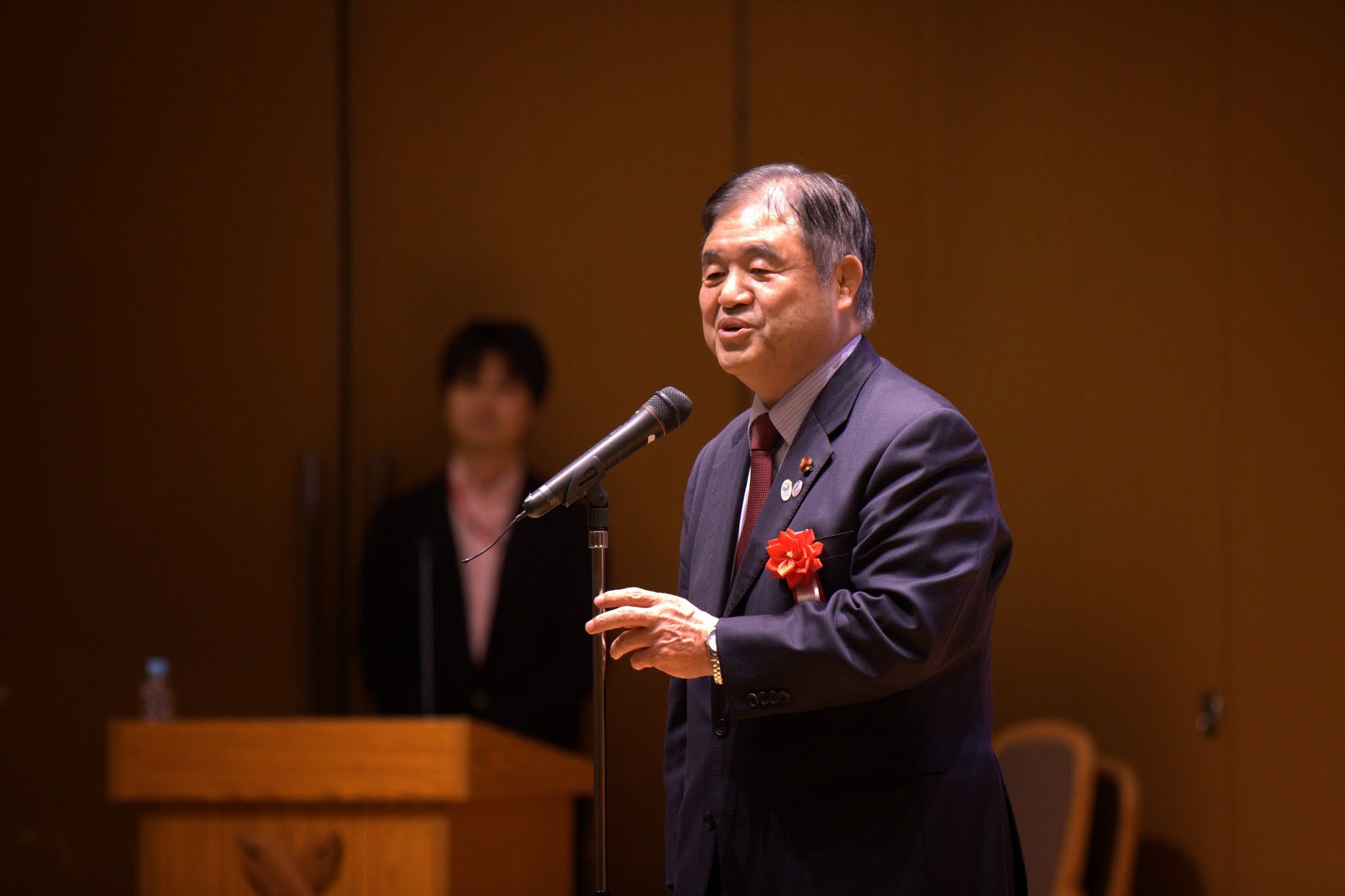
Prime Minister Shinzo Abe Visits Stanford
On April 30th, Prime Minister Abe delivered a speech at the Bing Concert Hall, where he discussed innovation, trade, and strengthening Japan's relationship to Silicon Valley. He was joined by Stanford President John Hennessy, as well as former Secretary of State and Hoover Institution fellow, George Shultz. Following the symposium, the Prime Minister was joined by several prominent leaders from Stanford and Silicon Valley for a roundtable discussion. More details can be found on the Stanford News website: http://news.stanford.edu/news/2015/may/shinzo-abe-visit-050115.html
